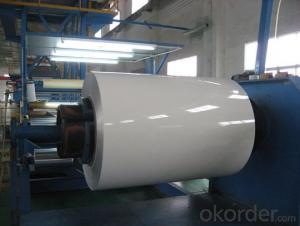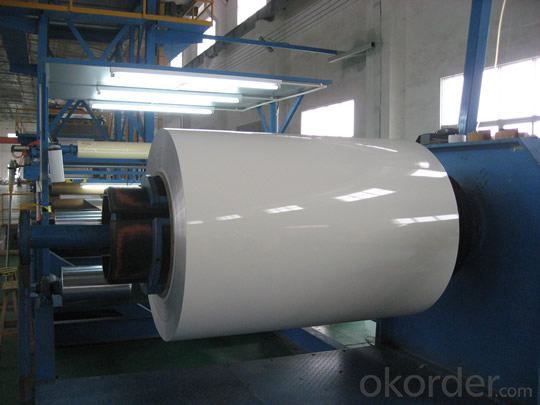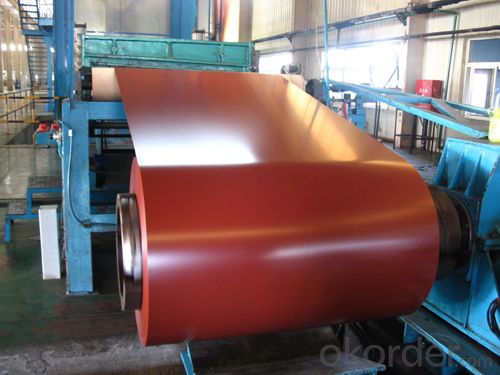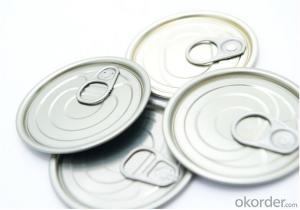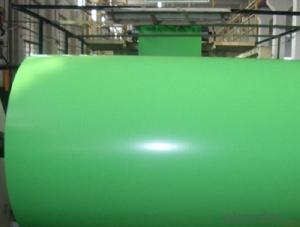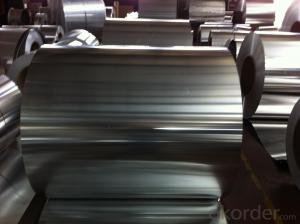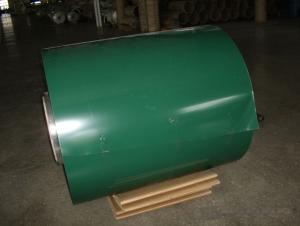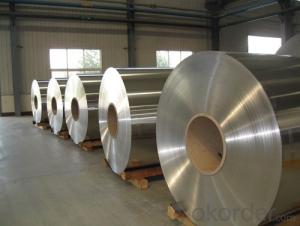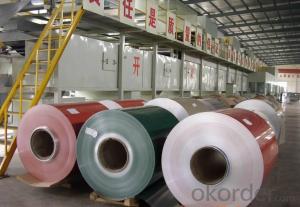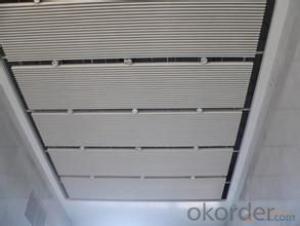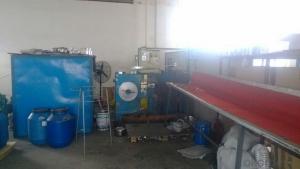Amerimax Aluminum Coil 1100 PE Aluminium Coil for Roofing/Ceiling/Gutter/Decoration
- Loading Port:
- Tianjin
- Payment Terms:
- TT OR LC
- Min Order Qty:
- 5 m.t.
- Supply Capability:
- 80000 m.t./month
OKorder Service Pledge
OKorder Financial Service
You Might Also Like
Specification
Alloy 1100 PE Aluminium Coil for Roofing/Ceiling/Gutter/Decoration
Specification
Grade
| 1000 Series: 1050 1060 1070 1100 1200 1235 etc. 3000 Series: 3003 3004 3005 3104 3105 3A21 etc. 5000 Series: 5005 5052 5083 5086 5154 5182 5251 5754 etc. 6000 Series: 6061 6063 6082 6A02 etc. 8000 Series: 8006 8011 8079 etc. |
Thickness | 0.05~10mm |
Width | <1600mm< span=""> |
Color | Metallic, Solid, RAL or by customer requirements |
Coating paint: | PVDF(Polyvinylidene Fluoride), PE(Polyester ) |
Coating thickness | as per customer’s request |
Gloss | 10-90%(EN ISO-2813:1994) |
Total coating thick | Polyester18~25micron(EN ISO-2360:1995) PVDF25 ~35micron(EN ISO-2360:1995) |
Coating hardness | 2H |
Protective film | PVC film, Colorless transparent or White-black |
Adhesion | 5B (EN ISO-2409:1994) |
Impact resistance | No cracking and peeling (A.S.T.M D2794-1993) |
Flexibility (T-bend) | 0T- 2T |
Temper | H16, H18, H24, H26, H26 |
Certification | ISO9001:2000, CE, SGS |
Coil's standard diameter | 1100mm |
Inner Diameter | 405mm/505mm |
Coil's standard weight | 2000kgs |
Payment | L/C ,T/T |
Packing
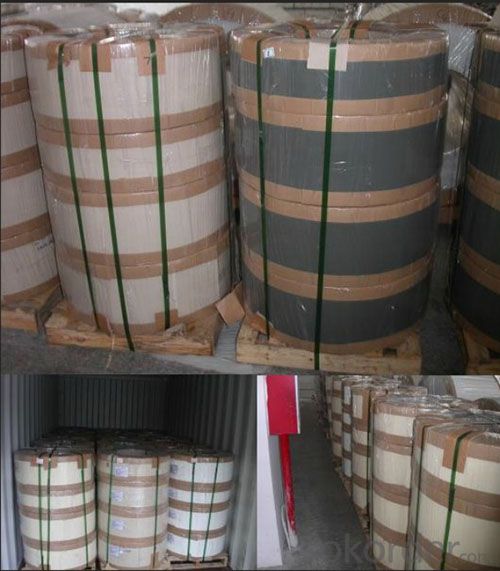
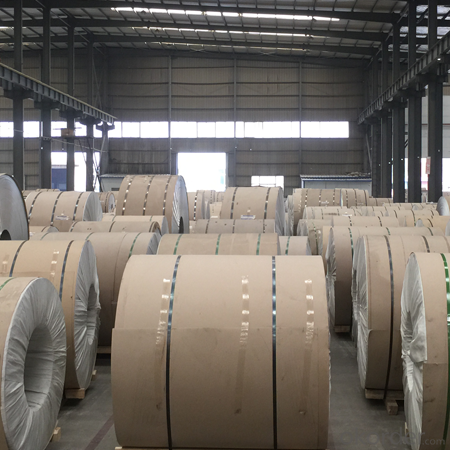
FAQ
Q: How can I request a product sample? A: The samples are free but freight should be collected. Please send sample list and courier account number by email.
Q: How can I request a product catalog? A: The hard copies of catalogs are free but freight should be collected. Please send courier account number by email. You are suggested to request a PDF catalog.
Q: Wha's your payment terms? A: One is T/T 30% before production and 70% against copy of B/L; the other is Irrevocable L/C 100% at sight.
Q: What's your trade terms? A: FOB, CNF(CFR), CIF, EXW.
Q: How long is the quality guarantee? A: All of our products have a period of quality guarantee since time of shipment. Please contact your salesman for more details, as different products enjoy different time of guarantee
- Q: Are aluminum coils suitable for architectural façade systems?
- Yes, aluminum coils are suitable for architectural façade systems. Aluminum is a highly versatile and durable material that can be easily shaped and manipulated to meet the specific design requirements of a building's façade. It is lightweight, corrosion-resistant, and can withstand harsh weather conditions, making it an ideal choice for long-lasting exterior applications. Additionally, aluminum coils can be coated with various finishes, such as paint or anodizing, to enhance their aesthetic appeal and provide additional protection against fading or chipping. The flexibility and versatility of aluminum coils make them an excellent option for architectural façade systems, allowing for creative and unique designs while maintaining durability and performance.
- Q: Are there any limitations to the minimum coil width of aluminum coils?
- Yes, there are limitations to the minimum coil width of aluminum coils. These limitations depend on various factors such as the type and thickness of the aluminum, the specific manufacturing process, and the equipment used. Generally, the minimum coil width is determined by the capabilities of the rolling mills or slitters used in the production process. These machines have certain minimum width settings that cannot be exceeded. Additionally, extremely narrow coil widths may pose challenges in terms of handling, transportation, and processing.
- Q: How do aluminum coils compare to nickel coils in terms of conductivity?
- Compared to nickel coils, aluminum coils typically exhibit lower electrical conductivity. This is mainly attributable to the fact that aluminum has a higher resistivity than nickel. Concerning conductivity, nickel emerges as a superior electrical conductor owing to its lower resistivity. Consequently, nickel coils are frequently favored in situations where high conductivity is vital, like in electrical circuits or heating elements. Nonetheless, it is crucial to acknowledge that aluminum coils still possess reasonable conductivity and may prove suitable for specific applications where cost-effectiveness or lightweight properties outweigh other considerations.
- Q: Are there any limitations on the bending or shaping of aluminum coils?
- Aluminum coils do have limitations when it comes to bending or shaping. Despite being a soft and malleable metal, there are factors that can affect its bendability. The thickness of the aluminum coil plays a role in its bendability. Thicker coils are generally more difficult to bend compared to thinner ones because they have increased resistance to deformation. The temper or hardness of the aluminum coil also affects its bendability. Different tempers, such as soft, half-hard, or hard, have varying degrees of malleability. Soft tempers are easier to bend, while harder ones require more force and may be prone to cracking or breaking during bending. The desired bend or shape's design and complexity can impose limitations as well. Sharp bends or intricate shapes may cause the aluminum coil to crack or deform, especially if it lacks proper support or if the bending radius is too small. Impurities, defects, or alloying elements present in the aluminum coil can also impact its bendability. These factors can lead to inconsistencies in the material's mechanical properties, making it more susceptible to cracking or breaking during bending or shaping. Therefore, it is crucial to consider the thickness, temper, design, and quality of the aluminum coil to ensure successful and safe bending and shaping.
- Q: Can aluminum coils be used in automotive manufacturing?
- Automotive manufacturing can indeed utilize aluminum coils. Aluminum, a versatile and lightweight substance, presents several advantages within the automotive sector. Frequently employed for fabricating components such as body panels, engine blocks, wheels, and heat exchangers, aluminum's incorporation in automotive manufacturing enhances fuel efficiency by reducing vehicle weight and subsequently minimizing energy consumption. Furthermore, aluminum boasts exceptional resistance to corrosion, rendering it appropriate for deployment in diverse weather conditions. In conclusion, the extensive benefits associated with the utilization of aluminum coils in automotive manufacturing have led to its widespread adoption by numerous car manufacturers.
- Q: Are aluminum coils suitable for electrical conductors?
- Aluminum coils, indeed, prove to be suitable for electrical conductors. Due to its remarkable electrical conductivity, aluminum has become a widely utilized material in the electrical industry. It possesses approximately 61% conductivity in comparison to copper, the utmost commonly employed metal for electrical conductors. Lightweight, cost-effective, and possessing good thermal conductivity, aluminum coils have become a favored selection for a range of electrical applications. Nonetheless, it is noteworthy that aluminum has a lower tensile strength than copper, thus potentially demanding a larger cross-sectional area to attain an equivalent level of current carrying capacity. Furthermore, to prevent oxidation and guarantee efficient electrical conductivity in aluminum coils, it is imperative to employ proper insulation and connectors.
- Q: What are the weight ranges of aluminum coils?
- The weight ranges of aluminum coils can vary depending on the specific application and industry. However, in general, aluminum coils can range from a few hundred pounds to several thousand pounds in weight.
- Q: What are the common surface defects or issues in aluminum coils?
- Aluminum coils may exhibit various surface defects or issues that can arise from different causes. These defects can have detrimental effects on the appearance, quality, and functionality of the coils. Therefore, it is crucial for manufacturers and users to be mindful of these defects and implement necessary measures to prevent or reduce their occurrence. Scratches, for instance, are visible marks on the coil surface that result from contact with abrasive materials or mishandling during production, transportation, or storage. Streaks, on the other hand, manifest as long, narrow lines or bands on the coil surface, often caused by irregularities in the rolling process or impurities present in the aluminum material. Dents are localized depressions or deformations that can occur due to mishandling, accidental impacts, or improper storage practices. Corrosion, though aluminum is generally resistant, can arise from specific environmental conditions or exposure to corrosive agents, leading to the formation of oxide layers or pitting on the coil surface. Edge cracks refer to fissures that appear along the coil edges, resulting from improper cutting or shearing during manufacturing. Surface roughness, characterized by an uneven or bumpy texture, can arise from inadequate smoothing or finishing during rolling or processing. Oil stains may be observed as dark or discolored areas on the coil surface, caused by improper cleaning or lubrication during production. Coil set refers to the coil's tendency to retain a curvature or shape after unwinding, resulting from stresses induced during rolling, coiling, or cooling, leading to an uneven and non-flat surface. Roll marks are patterns or imprints left on the coil surface by the rolling mill or equipment, caused by uneven pressure or improper tool alignment. Discoloration, characterized by changes in color or appearance, can result from exposure to high temperatures, chemical reactions, or oxidation. It is essential to recognize these surface defects and their potential impact on the quality and performance of aluminum coils. By taking appropriate preventive measures, manufacturers and users can minimize these defects and ensure the desired appearance and functionality of the coils.
- Q: Why does fillet appear when rolling aluminum coil?
- How thick and wide is it when there is such problem? Which is the rolling pass? And what is the type of the rolling mill? The simple 4 rollers or CVC and HC rolling mill with roller control. Does the filler appear in rolling or out of roller? Different thickness will lead to different analysis.
- Q: What are the different coil embossing options available for aluminum coils?
- There are several different coil embossing options available for aluminum coils. Some common options include stucco embossing, diamond embossing, and mill finish embossing. Each option creates a unique texture and appearance on the surface of the aluminum coil, providing different aesthetic and functional benefits for various applications.
Send your message to us
Amerimax Aluminum Coil 1100 PE Aluminium Coil for Roofing/Ceiling/Gutter/Decoration
- Loading Port:
- Tianjin
- Payment Terms:
- TT OR LC
- Min Order Qty:
- 5 m.t.
- Supply Capability:
- 80000 m.t./month
OKorder Service Pledge
OKorder Financial Service
Similar products
Hot products
Hot Searches
Related keywords
